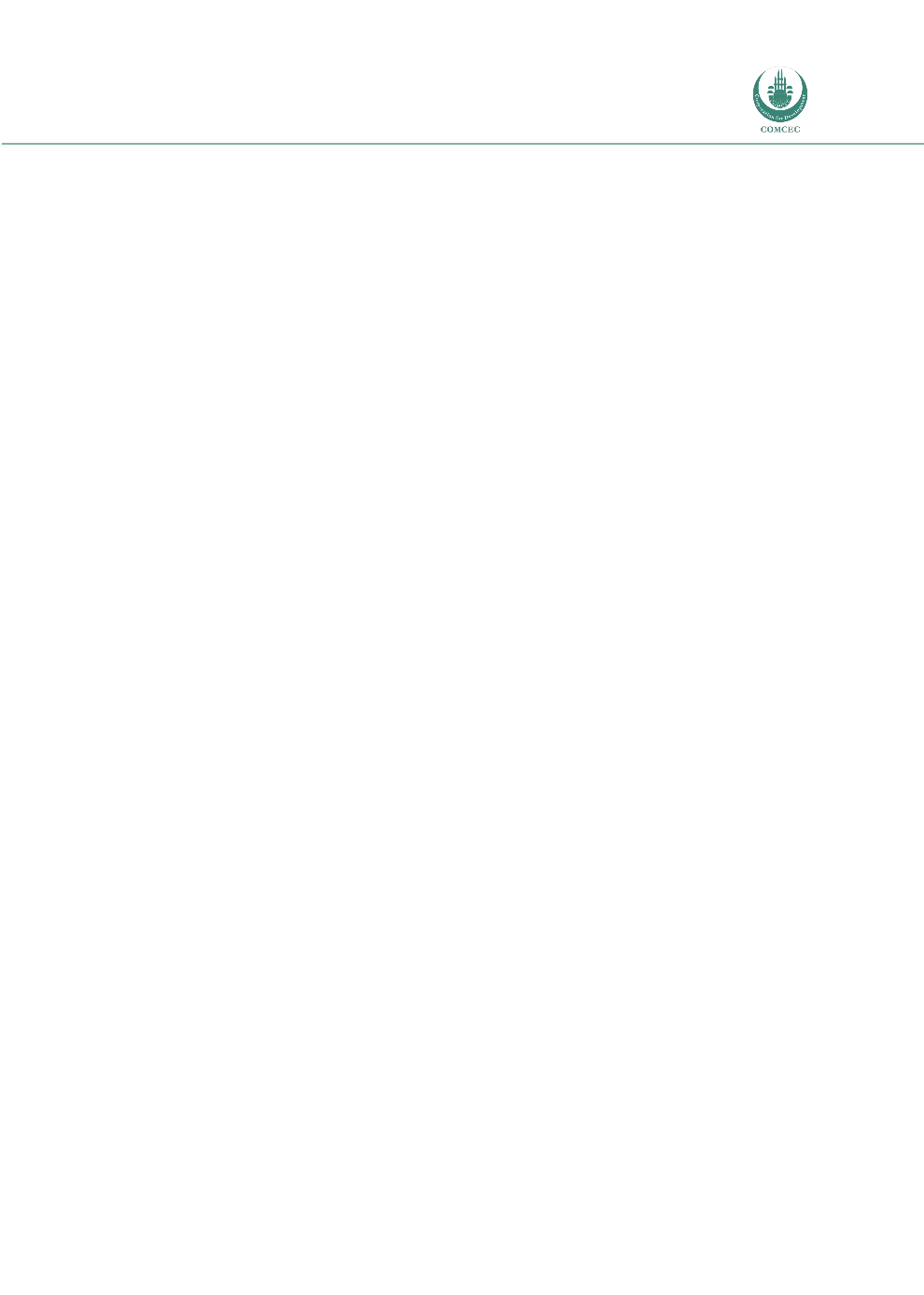

Retail Payment Systems
In the OIC Member Countries
59
General Banking and Payment Landscape
As the banking hub of francophone West Africa, Ivory Coast accounted for 27.6% of total
banking sector assets within the West African Economic and Monetary Union (WAEMU) region
in 2012. The banking sector consists mainly of French and Nigerian subsidiaries in addition to
state-owned banks. Although relatively well capitalised, the Ivorian banking sector also suffers
from credit risk in the form of comparatively high NPL ratios, partly a consequence of the post-
election conflict during 2010, when banks temporarily ceased operations. Authorities in the
WAEMU region are considering the establishment of a financial stability fund to support the
financial system during times of crises, such as experienced in Ivory Coast recently.
The relatively excessive liquidity of the banks is mostly due to the large amount of sight
deposits, which is partly why banks offer few long-term loans and explains the cost of banking
operations, which are still a major weakness of the economy. Access to loans remains very
difficult for many economic operators, especially long-term credit (which account for only 6%
of all loans). SMEs also have little access to short-term working capital, unlike large firms.
Guarantees, the cost of banking and lack of information all need to be reformed. The collateral
effects of the crisis and the public internal debt have damaged the quality of bank portfolios,
with bad debts now between 15% and 17% of all gross loans (African Economic Outlook,
2014).
Bank penetration is 13.4%, but the rapid growth of telephone banking is likely to increase
bank use by the population, 4 million of whom (a third of the workforce) were signed up for
the various mobile financial services in 2013 (African Economic Outlook, 2014). The number
of distribution channels for mobile financial services is estimated at 4,000. The opening of
bank branches in remote areas is encouraged by the government through incentives for
installing cash machines.
In 2007, the Council of Ministers of WAEMU adopted a new law establishing regulations for
decentralised financial systems, which will share the supervision between the Central Bank of
West African States (BCEAO), the WAEMU Banking Commission, which is mainly responsible
for the organization and implementation of controls for financial institutions, and the
respective Ministry of Finance for each member country. This decentralised bill was passed in
Cote d’Ivoire in 2011.
The BCEAO (La Banque Centrale des Etats de l'Afrique de l'Ouest or The Central Bank of West
African States) governs banking and other financial institutions in Ivory Coast. The financial
sector is dominated by banking. There were 20 commercial banks and three other financial

















